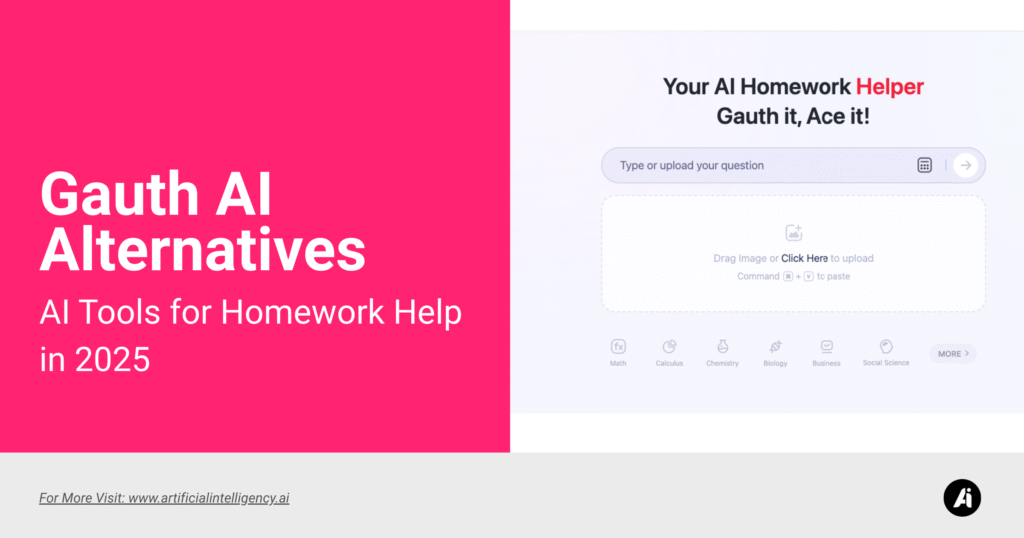Homework apps have come a long way in the last few years. What started as simple calculators and answer keys has transformed into powerful AI-driven platforms capable of solving equations, explaining concepts, and even connecting students with real tutors.
One of the names that often comes up in this space is Gauth AI (or Gauthmath) — an app that lets you snap a picture of a problem and get step-by-step solutions.
But while Gauth AI is popular, it isn’t the only option out there. Some students find its explanations lacking depth, others want broader subject support, and a few are concerned about data privacy because of its ownership by ByteDance.
If you’re exploring other options, you’ll be glad to know that the market is full of strong alternatives that bring their own strengths to the table.
In this guide, I’ll walk you through some of the best Gauth AI alternatives available in 2025. Each tool has its own unique features, strengths, and use cases — so by the end, you’ll have a clearer idea of which one fits your study needs best.
1. Photomath
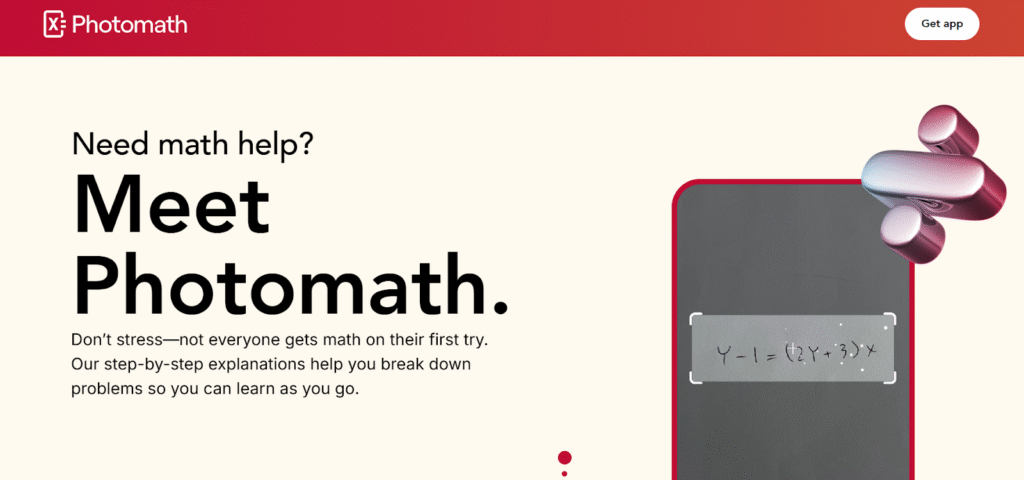
Photomath is one of the most widely recognized homework apps in the world. Like Gauth AI, it allows you to scan math problems with your phone’s camera. What sets Photomath apart is the sheer polish of its explanations. Each solution is broken into easy-to-follow steps, making it less intimidating for students who might be struggling with difficult equations.
Beyond just spitting out answers, Photomath’s animations walk you through each stage of the solution. For example, if you’re factoring a quadratic equation, the app visually shows the factoring process in a way that mimics how a teacher would explain it on a whiteboard.
It also covers a wide range of math levels — from basic arithmetic for younger students to advanced calculus and statistics for college learners. Teachers often recommend it because it balances utility with learning value, ensuring students don’t just copy answers but actually understand the process.
2. Symbolab
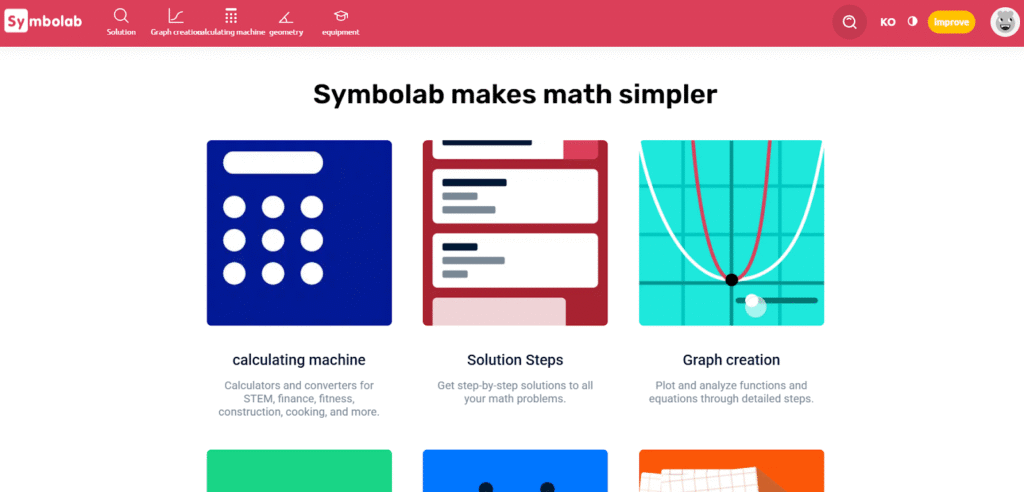
Symbolab takes a slightly different approach. It’s not just a homework app but also a powerful math engine that provides symbolic solutions. This means it’s capable of handling more complex algebraic manipulations, integrals, derivatives, and even differential equations.
One of the best parts of Symbolab is its practice problem sets. Students don’t just scan and solve; they can work through additional problems on the same topic, reinforcing the learning process. The app effectively doubles as both a solver and a digital workbook.
For students in STEM majors, Symbolab is particularly valuable. Its ability to break down advanced calculus or linear algebra problems makes it more appealing to college students than some of the simpler alternatives. While it does offer a free version, the premium subscription unlocks unlimited solutions and deeper explanations.
3. Chegg Study
Chegg is a giant in the education space, and its Chegg Study platform serves as a broader alternative to Gauth AI. Instead of focusing only on math, Chegg covers a wide range of subjects including business, economics, physics, engineering, and even humanities.
The standout feature here is its library of millions of textbook solutions. Students can look up specific problems from popular textbooks and find step-by-step answers written by experts. On top of that, Chegg Study also offers expert Q&A, where students can post custom questions and get answers from subject matter specialists.
While Chegg isn’t free and has faced criticism for encouraging shortcuts, it’s still one of the most comprehensive study platforms available. For students who want all-in-one support across multiple subjects, Chegg offers far more than a narrow math app can deliver.
4. Mathway
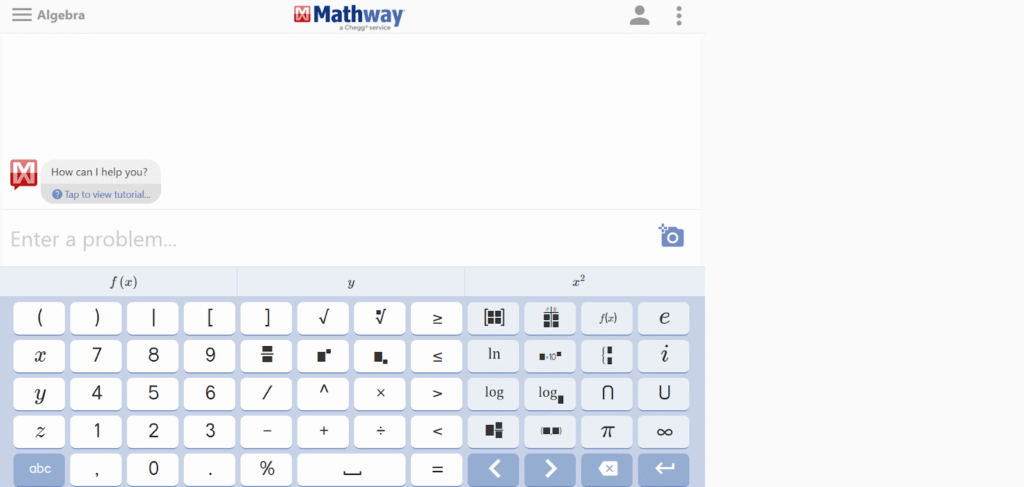
If speed and simplicity are your priorities, Mathway is a great Gauth AI alternative. Its clean interface lets you type in or snap a photo of almost any math problem — from algebra to calculus — and get an instant answer.
What makes Mathway attractive is its breadth of coverage. It can solve problems in pre-algebra, graphing, statistics, chemistry, and even finite math. Students often turn to it for quick checks, like verifying a homework answer before submitting.
While the free version only gives final answers, the premium version unlocks full step-by-step solutions. This makes it more flexible: you can use it as a simple calculator tool when you just need quick results, or as a learning assistant when you want to understand the logic behind the problem.
5. Brainly
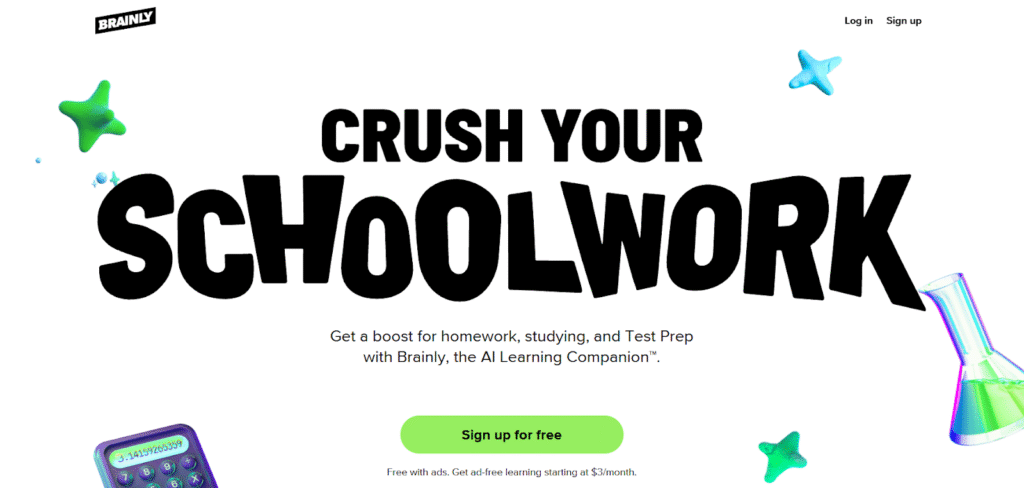
Unlike most apps that rely solely on AI, Brainly is a community-driven learning platform. Think of it as the “Quora for students.” You can post a homework question in math, science, history, or any subject, and get answers from peers and verified experts.
The strength of Brainly lies in its collaborative learning environment. Students not only get answers but also explanations from different perspectives, which can sometimes be more relatable than an AI-generated breakdown. The platform also includes AI tools for faster responses, blending automation with community knowledge.
Of course, quality can vary depending on who answers your question, but the verified expert responses tend to be strong. For students who thrive on discussion and shared learning, Brainly is one of the most interactive Gauth AI alternatives.
6. Socratic by Google
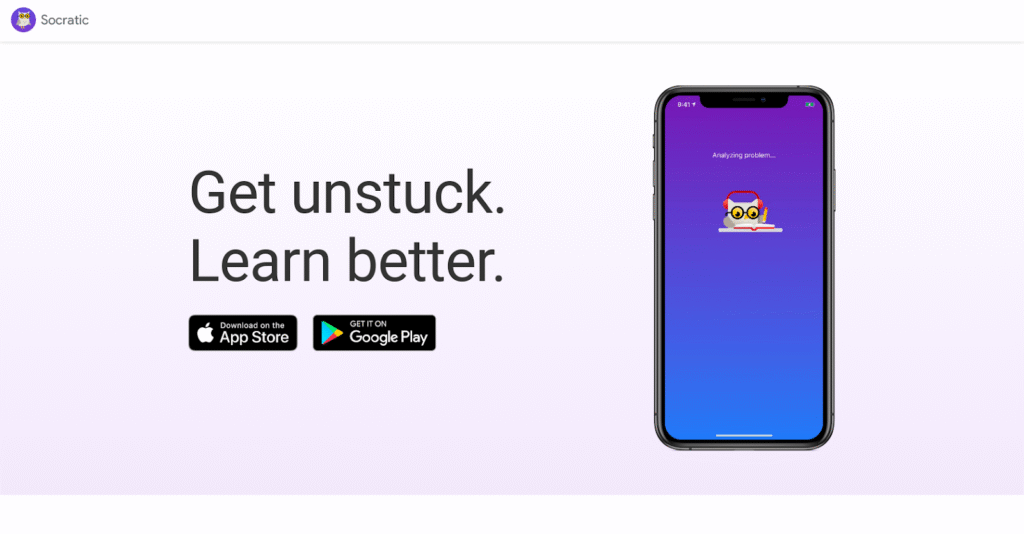
Socratic is Google’s take on the AI homework helper. Backed by the tech giant’s machine learning and search capabilities, it’s designed to handle a wide variety of subjects beyond math. Students can take a photo of a problem or type in a question, and Socratic provides explanations, links to resources, and even visual guides.
What makes Socratic stand out is its integration with Google Search. Instead of just solving problems, it connects you to curated learning resources, videos, and definitions that help you understand the bigger picture. It’s particularly good for students who want a mix of direct answers and supporting material to study from.
The app supports math, science, literature, history, and more, making it one of the most well-rounded alternatives to Gauth AI. Plus, it’s completely free to use.
7. Wolfram Alpha
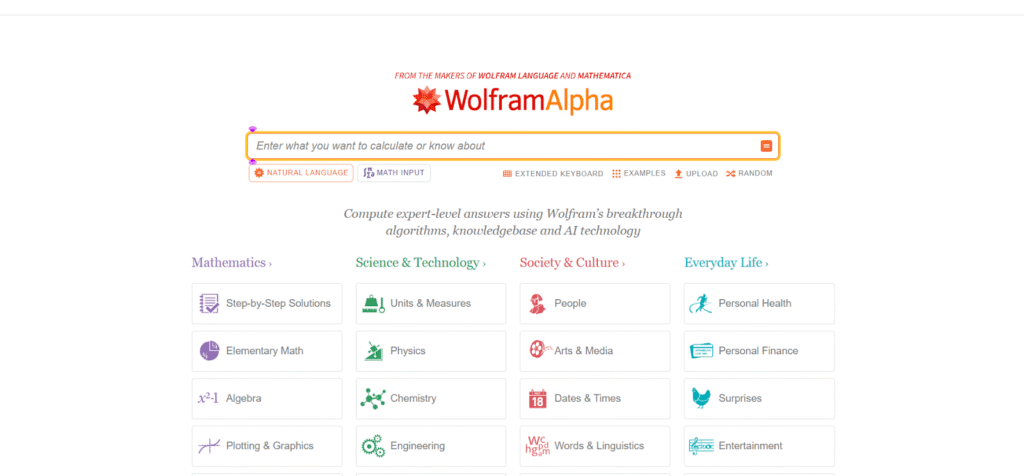
If there’s one tool that feels like having a supercomputer tutor, it’s Wolfram Alpha. This platform is often called the “computational knowledge engine” because of its ability to handle complex equations, advanced data analysis, and even natural language queries.
Wolfram Alpha goes far beyond simple homework help. It’s used by researchers, professionals, and students alike for tasks ranging from solving integrals to generating statistical models. For students in advanced math, physics, or engineering, it offers a level of depth unmatched by most other apps.
The downside is that it can feel overwhelming for beginners, and its interface isn’t as “student-friendly” as apps like Photomath or Socratic. But for those who want raw computational power and detailed solutions, Wolfram Alpha is an unbeatable alternative.
Why Look for Gauth AI Alternatives?
While Gauth AI has a loyal user base, students seek alternatives for a few key reasons:
- Accuracy concerns: The AI occasionally misreads handwritten problems.
- Subject limitations: Gauth AI is strongest in math but weaker in broader subjects.
- Tutor quality: Human tutor responses vary in depth and clarity.
- Privacy worries: ByteDance’s ownership raises data security questions.
These factors make students look toward other apps that offer better explanations, more subjects, or stronger privacy safeguards.
Pros and Cons of AI Homework Apps
AI homework tools are game-changers, but they come with trade-offs.
Pros:
- Instant feedback without waiting for a teacher.
- Step-by-step solutions improve understanding.
- 24/7 availability fits any schedule.
- Many cover multiple subjects, not just math.
Cons:
- Risk of students copying answers without learning.
- Accuracy issues with messy handwriting or complex questions.
- Subscription costs can add up.
- Over-reliance may hurt long-term study habits.
Pricing Comparisons
Here’s how some of the most popular alternatives compare in terms of cost:
- Photomath: Free, with Photomath Plus subscription for advanced explanations.
- Symbolab: Free basic use, premium plan for unlimited solutions.
- Chegg Study: Subscription-based, around $15–20/month.
- Mathway: Free answers, premium for step-by-step ($9.99/month).
- Brainly: Free community answers, premium for verified expert help.
- Socratic by Google: Completely free.
- Wolfram Alpha: Free basic queries, Pro version for advanced features ($5–7/month).
Overall, pricing depends on whether you want basic problem-solving or in-depth learning tools.
Final Thoughts
Gauth AI has carved out a strong space in the homework app world, but it isn’t the only choice. Tools like Photomath and Symbolab shine for pure math learners, while Chegg and Brainly offer broader subject coverage.
Socratic by Google appeals to those who want curated learning resources, while Wolfram Alpha delivers unmatched computational depth.
The best choice depends on your goals. If you just want to check answers quickly, Mathway or Photomath might be perfect. If you need multi-subject support, Chegg or Socratic make more sense. And for advanced problem-solving, Wolfram Alpha is in a league of its own.
In short, the alternatives aren’t just substitutes for Gauth AI — many of them are actually better fits depending on your learning style and study needs.
FAQs
Which app is better than Gauth AI for math?
Photomath and Symbolab are often considered stronger for pure math because of their detailed step-by-step explanations.
Is there a free alternative to Gauth AI?
Yes, Socratic by Google is completely free and covers multiple subjects, not just math.
Can I use these apps for science or history?
Apps like Chegg and Brainly cover science, history, literature, and more. Gauth AI alternatives vary in subject coverage.
Do these apps replace teachers or tutors?
Not entirely. They’re great for homework support and practice, but human guidance is still crucial for deeper learning.
Which tool works best for college students?
Wolfram Alpha and Symbolab are excellent for higher-level math, physics, and engineering problems.
Author
-

With a background in AI research and years of experience in tech journalism, I specialize in covering the latest developments in artificial intelligence. I translate complex innovations into clear, engaging stories that inform and inspire.
View all posts
